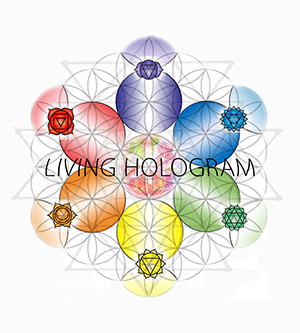
BARDO ~ The YOGA of DREAMING
You’ve probably heard the saying, “A picture is worth a thousand words.” This sentiment taps the uniquely human ability for story telling. Our lives are stories, comprised of various characters, plots, and themes. Awake and asleep, these stories are our dreaming.
One of the greatest storytellers who ever lived, quite literally told stories to spare her own life. Her tales of mystery and suspense spanned centuries, uniting cultures from Asia, India, and Persia. They speak about human nature in ways any age can understand. From Aladdin, whose life is changed by a magical lamp, to a sailor named Sinbad who faces life and death as he travels seven seas, the greatest story from the Arabian Nights is the one about the storyteller – Scheherazade!
Scheherazade’s story is a middle Eastern tome dedicated to the Bardo!
Scheherazade’s father was vizier to King Shahryar, an ancient ruler whose dominion stretched from India into Southeast Asia. The king became embittered when he discovered his wife with another man. Furious, he had her beheaded and determined never to put himself in that position again. He took to ordering the vizier to bring him a virgin in the evening. Following his night of pleasure, he ordered the woman killed so she might never have the opportunity to lie with another man. That evening another virgin was presented, bedded, and beheaded at sunrise. This went on until the only virgin left in the land was the vizier’s daughter, Scheherazade.
Scheherazade knew of her father’s predicament and resolved both to save him and gain amnesty for the thousands of virgins who had fled for their lives to foreign lands. Against her father’s wishes, she offered herself to the king. Scheherazade was pleasant and polite, wise and witty, well read and well bred. She had studied philosophy and the sciences, arts and accomplishments. It was said that she had collected a thousand books of histories relating to antique races and departed rulers. She could recite the works of the poets, and her voice was as an angel to the king’s hardened heart.
Finding it difficult to sleep, the king asked Scheherazade to tell him a story. The night passed quickly by, and the sun began to rise before her tale was told. The king asked her to finish, but Scheherazade insisted there was no time, as dawn was breaking. So, the king spared her life for one day to finish the story that night. The evening, Scheherazade finished the story and then began a second, even more exciting tale, which she again stopped halfway through at dawn. Again, the king spared her life for one more day so she could finish the second story. And so the king kept Scheherazade alive day by day, as he eagerly anticipated the finishing of the previous night’s story.
After a thousand and one nights, Scheherazade told King Shahryar she had no more stories. Ah! But what marvelous tales she had told! – of demon terrors and warriors more fierce than any he had known. Heavenly devotion of gentle women tending to husbands and families. Her tales of wisdom, heroism, love, and piety were beyond what Shahryar had ever imagined, and could dream of now only because of his nights with Scheherazade.
The king’s heart had opened, even without him knowing. He repented, marrying Scheherazade and all the virgins journeyed home from exile to a land that was fertile and fruitful once again.
Telling stories in the night, dreams, spared Scheherazade’s life while it gave meaning to the king’s. This is the reason for the Bardo. The Bardo is that intermediate state between living a waking dream and understanding its impact on the soul. As the carrier of the stories, Scheherazade stayed awake to their meaning, carefully choosing the tales that would keep the king’s interest all through the night of his soul. When morning arrived, the story continued suspended in the king’s daily affairs until he rejoined the woman he no longer wanted to kill. Scheherazade’s wealth of wisdom spared her life as it illuminated her king’s.
This transformation is the story of the Bardo.
The Dream Consciousness Circuit
When Greek philosopher Socrates declared at his trial, “The unexamined life is not worth living,” he expressed in the negative form the purpose of life. American author and the architect of the BARDO DIET Barbara O’Guinn Condron made a mirror thought – the life worth examining – a driving force in her consciousness work. “What is a life worth examining?” she asks. “When does this happen? Why? It seems to be within our capacity as thinking beings to connect consciousness through Spirit, Mind, and Body.” After five decades of study and practice, she coined this connection the “Dream Consciousness Circuit.” The quality of our lives is dependent upon our response to the transitions between these worlds. These transitions have a name – bardo. To learn more visit dreamschool.org.
Learn more at dreamschool.org
When we close our eyes, we end a day and begin a twilight time. Part of us enters into alternate realities. Sometimes we recall our experiences there. When we do, we say we remembered a dream. What happens to the “you” that you are so familiar with during your daytime hours? Do we just forget who we are and escape into a dreamland where we are married instead of single, retired rather than opening our own business, a child instead of approaching 40? “We are such stuff as dreams are made on, and our little life Is rounded with a sleep,” William Shakespeare penned.
We dream while awake. We dream while asleep. Where is the connection? Are our dreams a series of “dropped calls” from a “poor reception” of partial words and images from a caller we don’t recognize? Becoming the connector of the inner and outer worlds makes for a life worth examining.
The capacity to dream stirs an inner connection with the divine. THE BARDO DIET is that connection.
